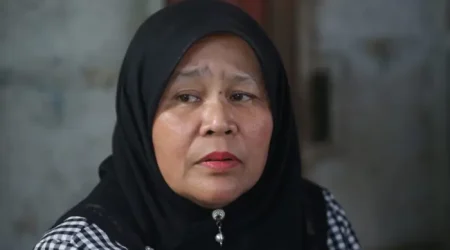‘Legal woes if ban is not consistent’
Experts call for unified policy across all states to halt sales of vape products
PETALING JAYA: Some states, in contrast to the Federal Government, are making a decisive move to ban vaping.
Among those that have banned vaping or stopped issuing licenses to traders are Johor, Terengganu and Perlis.
Other states are considering a similar proposal.
Now, calls are growing for the Federal Government to do the same.
ALSO READ: Running out of vaping space
Legal experts also point out that the inconsistencies between state and federal laws could lead to conflict.
Universiti Malaya Department of Primary Care Medicine senior lecturer and family medicine specialist Assoc Prof Dr Nur Amani Ahmad Tajuddin said a more unified policy across all states was needed to prevent teenagers from accessing and buying vape products.
“Some areas, such as Johor and Penang, have taken steps to stop and reduce vape sales and advertisements. This is a good thing to do, but it is not enough.
“The rest of the states need to follow suit for the legislation to have a real effect.
ALSO READ: Ban will spur black market, warn stakeholders
“Therefore, the issue of banning it at the state level should no longer be debated.
“It should be enforced at the federal level,” she added.
So far, the Health Ministry has not implemented a ban on vaping, opting instead to regulate the substances contained in vape liquids.
Health Minister Datuk Seri Dr Dzulkefly Ahmad had said that states were empowered by local regulations to control the sale of such devices within their jurisdictions.
ALSO READ: Ex-airman’s haunting last message
Deputy Inspector-General of Police Datuk Seri Ayob Khan Mydin Pitchay has also urged the state governments to ban the sale of electronic cigarettes or vapes, which were increasingly linked to the abuse of new synthetic drugs.
Malaysia Consumers Movement legal advisor Sukhdave Singh called on the Health Ministry to impose a blanket ban on vape products nationwide.
He said merely outlawing vape products in certain states would not achieve desired results due to inconsistencies in policies or the law.
“Medical evidence is clear that the habit of smoking or vaping is detrimental to health and can be addictive, especially when mixed with banned drugs. Therefore, we must nip it in the bud.
ALSO READ: Asean countries snuff out vaping trend
“We applaud the state governments that have banned vape products.
“It can be a challenge to implement such a ban, but we must bear in mind that a product that is harmful to consumers should not be allowed to be an industry. We need to do the right thing,” he said.
Anti-smoking activist NV Subbarrow raised concerns over how people could still travel to other states to shop for vape products.
“A federal ban should be considered rather than allowing states to make their own decisions.
“The authorities should also look into the online sale of vape products, which are easily accessible for purchase, especially among the younger generation,” he said.
Subbarow, who is also the Consumers Association of Penang education officer, said federal authorities should play an active role in halting vape sales nationwide.
“The more we delay, the greater the risk to future generations,” he said.
Consumer Association of Penang (CAP) Mohideen Abdul Kader warned that the presence of drug-laced vape products in Malaysia was well-documented, as ganja-laced vape liquids had been on the black market since 2015, while “magic mushroom” vapes were found to contain synthetic drug cocktails in 2023.
“This necessitates an outright ban across the nation on vape products, as it is a growing menace, and if not done now, drug addiction could reach an irreversible crisis level.
“Last year, the police recorded 119 cases of drug-laced vape liquid seizures, which is a 32% increase compared to 2023.
“Last month, the Health Ministry revealed that 65.6% of vape liquids seized in 2023 and 2024 contained dangerous drugs,” he said when contacted.
Malaysian Council for Tobacco Control (MCTC) president Dr Murallitharan Munisamy said states enforcing the vape ban should ensure it worked.
“Enforcement of sale has to come from municipal councils. Are municipal councils able to manage that?
“Secondly, cigarettes are still being sold. So the aspect of licensing cigarette sellers has to be brought in,” he said, adding that a wholesome approach to the issue is needed to move forward.
Lawyer and former Malaysian Bar president Salim Bashir Bhaskaran said a distinct vape ban in some states would cause confusion for consumers, business stakeholders and federal enforcement.
“Although the vape bans by some states could be perceived as a noble move, with an intention to protect public health – the move cannot be to the extent of exacerbating trust deficit in state-federal relations on this matter and compounded further with any inconsistencies with the Federal Constitution and any other relevant federal laws,” he said.
“Article 75 of the Federal Constitution provides that if any state law is inconsistent with federal laws, the federal laws will prevail, rendering any state laws to be void to the extent of the inconsistencies,” he said, pointing out that the Federal Government had the Control of Smoking Products for Public Health Act in place.
He said conflicts between state laws, federal laws and the Federal Constitution were at the risk of being challenged and struck down by courts for being unconstitutional.













Leave a Reply